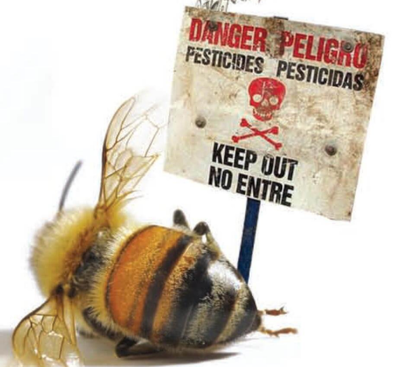‘Emergency’ Loophole Used to OK Highly Toxic Pesticide for Tenth Straight Year
EPA Approvals Highlight Decades-Long Misuse of Exemptions

All Global Research articles can be read in 51 languages by activating the “Translate Website” drop down menu on the top banner of our home page (Desktop version).
To receive Global Research’s Daily Newsletter (selected articles), click here.
Follow us on Instagram and Twitter and subscribe to our Telegram Channel. Feel free to repost and share widely Global Research articles.
***
The Environmental Protection Agency reported this week that it issued so-called “emergency” approvals to spray various neonicotinoids and pyrethroids — insecticides the agency itself recognizes as “very highly toxic” to bees and aquatic insects — on more than 370,000 acres of crops across the U.S.
Emergency exemptions allow the spraying of pesticides not otherwise approved on specific crops. The approvals, made from July 2021 to June 2022, allowed for the spraying of thiamethoxam on rice paddies in Arkansas and bifenthrin on peach, apple and nectarine orchards in Pennsylvania, New York, Maryland, Virginia and West Virginia.
“The EPA is using this backdoor approval process to ramp up otherwise unlawful use of dangerous pesticides,” said Nathan Donley, environmental health science director at the Center for Biological Diversity. “Declaring an emergency for 10 consecutive years demonstrates that EPA officials have taken the abuse of emergency exemptions to the point of absolute absurdity.”
This marks the 10th straight year that emergency exemptions for bifenthrin have been granted in Pennsylvania, New York, Maryland, Virginia and West Virginia, where it would otherwise be illegal to use the potent insecticide to target the brown marmorated stinkbug on pome and stone fruit trees, which are highly attractive to bees. Bifenthrin is known to be highly toxic to bees. It is a restricted-use insecticide of the pyrethroid class that is linked to autism, Alzheimer’s and Parkinson’s diseases. It is a highly persistent pesticide that is considered a Per- and Polyfluoroalkyl Substance, or PFAS.
This is also the second consecutive year that the highly toxic insecticide thiamethoxam has been approved for use on rice fields in Arkansas. The maker of thiamethoxam, Syngenta, applied for a general approval of thiamethoxam on rice and other crops in 2017. Nearly five years later the EPA has yet to approve or deny that application, indicating there are high risks that prevent the agency from granting approval through its normal processes.
The so-called emergency approval will allow the pesticide, which is incredibly toxic to aquatic invertebrates, to be sprayed on a crop that is grown in standing water throughout much of the year. Arkansas is home to 20 species of freshwater fish, mussels and crawfish listed under the Endangered Species Act that require clean freshwater habitat for their survival.
“Big Ag knows that when a pesticide can’t make it through the normal review process, it can always exploit the emergency exemption process,” said Donley. “The absurd ‘emergency’ approvals for these dangerous poisons show that the EPA often succumbs to pressure to shrug off proper consideration of what’s safe for people or wildlife.”
The EPA has routinely allowed emergency exemptions for predictable and chronic situations that occur over many consecutive years. The agency has consistently abused the authority of granting emergency exemptions, as chronicled in the Center’s report, Poisonous Process: How the EPA’s Chronic Misuse of ‘Emergency’ Pesticide Exemptions Increases Risks to Wildlife.
In 2019 the EPA’s Office of the Inspector General released a report finding that the agency’s practice of routinely granting “emergency” approval for pesticides across millions of acres does not effectively measure risks to human health or the environment.
The Center has filed a legal petition calling for EPA to limit emergency exemptions to two years as a way to prohibit some of the more egregious abuses of this process. The EPA has not taken any substantive action in response to the petition.
*
Note to readers: Please click the share buttons above or below. Follow us on Instagram and Twitter and subscribe to our Telegram Channel. Feel free to repost and share widely Global Research articles.
Featured image is from Zero Hedge

